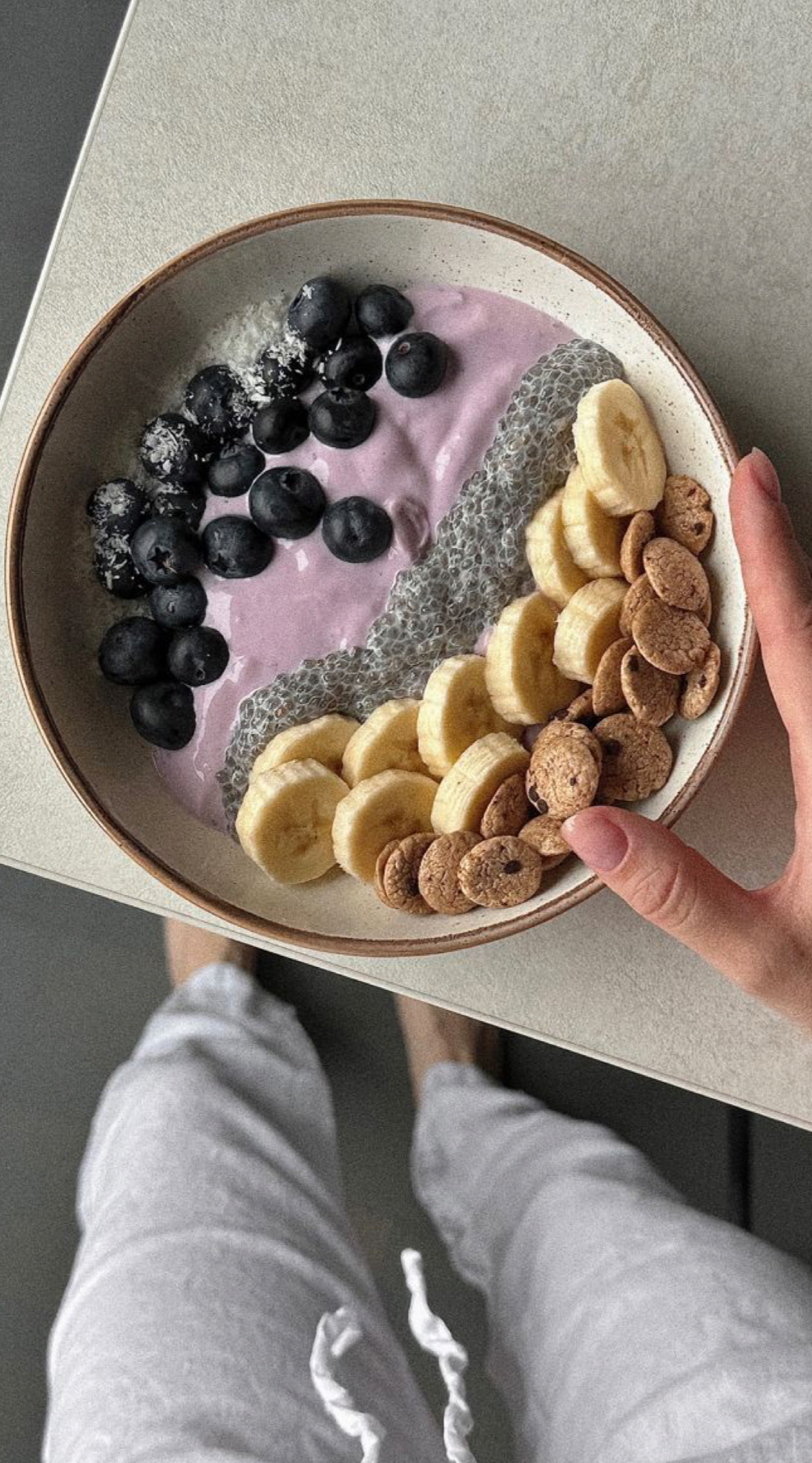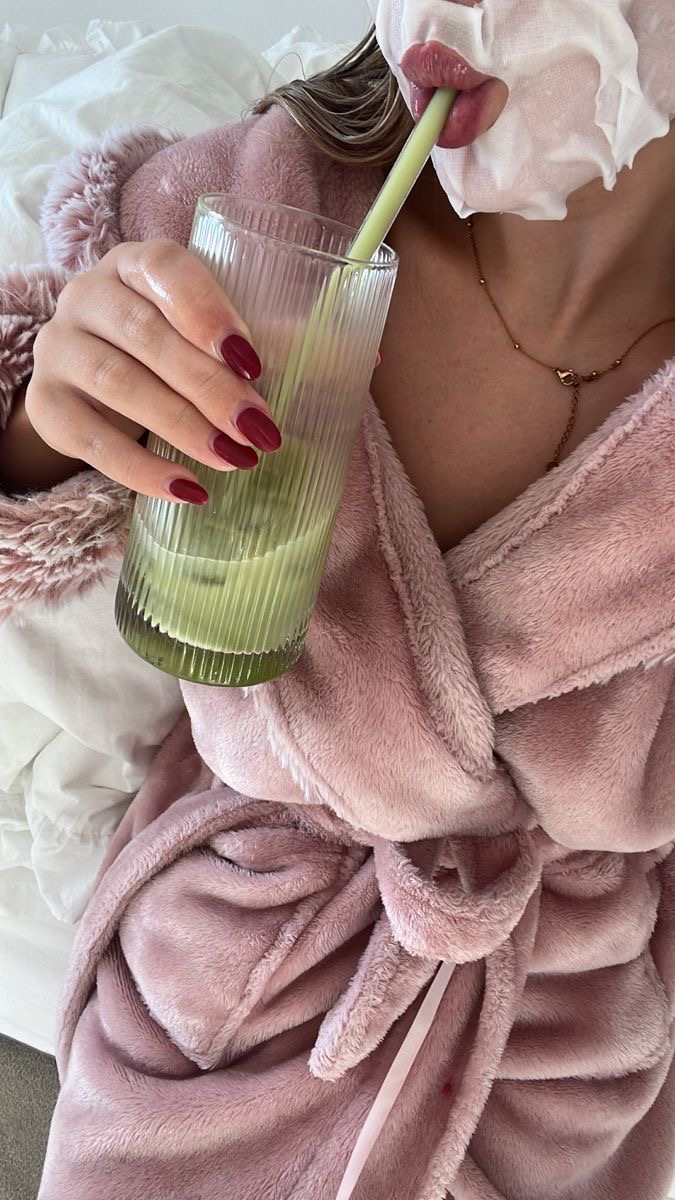The body repairs itself
No matter how many calories you ate or how many servings of mashed potatoes you devoured, the body processes and digests all of it. Everything from the saliva in the mouth to the enzymes in the stomach is meant to digest food, get the nourishment it needs from that food, and then get rid of excess through waste (gross, but true). Yes, this is anatomy 101, but it’s important to keep in mind that the body is built to repair itself. “Our bodies are equipped with incredible resilience for our metabolic and food processing responses, including the liver, gut, and kidneys, which work around the clock to keep our energy and nutrient levels optimal and eliminate unwanted toxins,” said Dr. Federica Amati, head nutritionist at ZOE.
Your body will digest all that sweet potato casserole on its own, whether or not you try to help it the next day. Likewise, you don’t need juice cleanses to “flush out toxins”; it’s the body’s job to detoxify, so the liver, colon, and kidneys have got you covered. Bottom line: The body repairs on its own, and it doesn’t need cleanses or detoxes to get the job done.
A healthy diet includes indulgences, too
Maybe your idea of a healthy diet entails macronutrient percentages, or maybe it’s more about what you’re not eating (no sugar, no gluten, no refined carbs, etc.). There’s a lot of confusion, uncertainty, and debate about what a “healthy diet” really means. In reality, a healthy diet looks different to every single person—it’s whatever honors what your body needs (including foods that you love), and it’s about making intuitive choices with whatever is available. Enjoying cornbread or pecan pie does not mean you “broke” a healthy diet or have to “make up” for it by only eating salads or working it off; it simply means your healthy diet includes foods that feed your soul and honor special occasions. “Food is about enjoyment and celebration, connecting socially with loved ones, as much as it is about nourishment,” Dr. Amati said. “A healthy diet is not about perfection but balance and consistency, and that includes indulging in your favorite holiday dishes guilt-free.”
Nutrition is more than just what’s on your plate
If you believe the false narrative that the body needs a detox to help it get back to “healthy” after one meal, you should also know that nutrition is not just about food. Yes, fruits and vegetables nourish the body, but so do the people we spend our time with, the music we listen to, and what we see when we scroll through Instagram. Leafy greens and lean proteins are important, but how we spend our time and who we make time for feed us, too. If you’re not also making room for how you feel nourished besides the food on your plate, you’re missing key pieces of the puzzle.
“What we eat is only part of the picture,” Dr. Amati said. “How we eat—mindfully, with joy, and in good company—plays a crucial role in how our bodies process food. Stressing over meals can sometimes do more harm than good in impacting our food choices. It’s also important to remember that moving our bodies and getting good quality sleep is key to good nutritional health.” Keep your stress levels down, regularly engage in activities you love, and surround yourself with people who make you happy, and your body will respond accordingly.
How to Care for Your Body Instead
1. Listen to your body during the meal
Instead of attempting to “undo” your mindless binge starting at 4 p.m. on Thanksgiving Day, keep up healthy habits and listen to your body. Before each serving or course, check in with yourself to identify what your body really wants. Maybe you’re not really hungry, but you would enjoy every bite of a slice of pumpkin pie because it’s your favorite holiday dessert, or maybe you realize your digestion is feeling off and you haven’t had enough veggies with your meal—both are equally great reasons to eat more food. Dr. Amy Shah, a double board-certified medical doctor and nutrition expert at Alo Moves, advised starting with smaller portions and then checking in with yourself to see when you feel comfortably full. When you start feeling satisfied and are no longer finding pleasure in each bite, that’s your body’s cue telling you to stop instead of mindlessly eating until you’re uncomfortably stuffed.
“Slow down and pay attention to hunger and fullness cues,” Dr. Amati recommended. “Savor each bite—this not only helps with digestion but also lets you enjoy the meal more and even improves metabolism as we’ve seen in our research on eating rate.” Aim for a balance of your favorite holiday foods and nutrients that will make your body feel good, and eat mindfully so you can pass on more stuffing when you’re satiated.
2. Stretch and (gently) move the body

Please do not push yourself to do a two-hour HIIT class first thing Friday morning as a means to “erase” what you ate the night before. That’s not how the body works, but it’s also unnecessary. Go on a jog or work out if your body is craving movement, but if you’re feeling sluggish and lethargic after Thanksgiving, try going on a walk and doing some stretches to relax the body. “A short walk or some light stretching after your meal can aid digestion and help reduce any discomfort from being more full than usual,” Dr. Amati conveyed. “It’s not about burning off calories but about feeling good in your body and giving your digestive tract a helping hand as it moves things along.” Movement, no matter how low-impact, can boost energy, motivation, and mental health, which is especially important if you’re feeling that post-feast food guilt.
3. Add more to your diet

A detox or cleanse implies that you’re subtracting and streamlining your diet. Instead, add more nutrients to give your body what it needs for energy and to help with digestion, and that includes water. Staying hydrated can improve energy levels and digestion, not to mention promote better sleep quality and mood. Dr. Shah pointed out that water helps break down food in the mouth, stomach, and throughout the digestive tract, which can help relieve digestive discomfort like constipation. Especially if you’re feeling hungover (whether it’s from too much food or cider punch), drinking enough water helps the body do all the repairing it’s meant to do. If it’s hard for you to remember to drink water (or you’re an overachiever and want an additional challenge), try an herbal tea like peppermint, which can aid in easing indigestion and bloating.
Dr. Amati suggested adding diversity onto your plate post-Thanksgiving, namely plenty of plants. Vegetables are loaded with good-for-the-gut fiber (fiber keeps digestion moving, helps the body get rid of waste, and helps keep blood sugar levels balanced) and immune-boosting antioxidants (antioxidants help the body fight off harmful free radicals, which have been linked to health conditions like diabetes and cancer) that support the body functioning at its best (AKA you feeling your best). No matter what you feel like eating for the next few days, focus on incorporating even more veggies with each meal. Add spinach to your omelet or smoothie, get steamed veggies or a side salad when ordering out, and try a veggie-packed juice for an afternoon snack.
“Detox your thoughts; your body’s already got you covered.”
4. Take a nap

Drop any guilt over taking an afternoon siesta (no toxic productivity here) because the ultimate lazy-girl activity is an effective way to help your body recover from Thanksgiving indulgences. Sleep is crucial for the body to go to work to heal itself. “Sleeping relaxes the body, allowing it to focus on digesting food and absorbing nutrients, which can help prevent issues like constipation,” Dr. Shah said. Dr. Amati added that if you’re feeling sluggish after a big meal, a brisk walk and a short nap can help your body refresh and recover, emphasizing that rest is just as important as nutrition in maintaining overall health. So if you’re feeling lethargic and parking it on the couch all day is what your body needs, don’t force yourself to work out or be productive. Give the body time to restore and repair by taking a nap if your body is feeling tired during the day and getting a solid seven to nine hours of sleep at night.
5. Make time for self-care

Whether the way you best care for yourself looks like an everything shower or simply bed rotting, spend some extra time making yourself feel pampered and cared for the weekend after Thanksgiving. Not only will a little extra TLC help you feel physically better from that food coma, but it can also help ease the stress from any food guilt. Keep in mind that any stress and guilt you have from eating are worse for your body than the pumpkin pie, stuffing, and green bean casserole you feasted on, so prioritize self-love if you’re feeling the regret kick in. Re-read a book that makes you happy, practice gratitude affirmations, or bake a new recipe—whatever you do, remind yourself that one meal (or any meal) doesn’t change how worthy you are. “Focus on the things you are grateful for, including yourself,” Dr. Shah said. While you’re at it, detox your thoughts; your body’s already got you covered.
written by JOSIE SANTI
updated by KATHERINE CHANG

